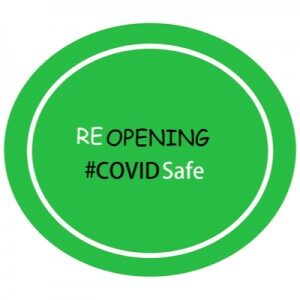Update February 6, 2017: Since the publication of this blog last year, two cities have passed laws prohibiting prospective employers from inquiring about salary history when interviewing prospective job applicants: Philadelphia, Pennsylvania and New Orleans, Louisiana. In November, 2016, Mayor De Blasio signed an executive order, prohibiting city agencies from inquiring about salary history before making a job offer, but New York City’s bill that would cover private employers is still pending before the New York City Council. A decision on that bill is expected this year. More municipalities and States are sure to follow on the path of seeking to ensure women and minorities receive equal pay for equal work.
In a March 3, 2015 Dilbert comic strip, the boss tells his subordinates that because of a study showing that tall people earn more than shorter people, the company will not be doing performance reviews but will instead simply measure the height of each employee and then pay them accordingly. The boss then adds: “Alice will earn 10% less than the men. I think that’s the law.”
Well, jokes like those about women earning less than their male counterparts for doing the same job–as a matter of fact, if not a matter of law– may soon be “history” or “herstory” if laws like the one recently passed in Massachusetts and the one proposed this week in New York City take hold. On August 1, 2016, Massachusetts became the first State in the nation to prohibit employers from asking about a job applicant’s salary history or past benefits before extending an offer of employment with compensation, in a new pay equity law. Although Massachusetts had already passed a pay equity law requiring equal pay for comparable work back in 1945, this new law goes further.
The Massachusetts pay equity law also prohibits employers from requiring employees not to talk about wages, benefits or other compensation, or not to inquire, discuss or share information about any other employee’s wages, benefits or other compensation. An employee who prevails in a lawsuit under this new pay equity law may also recover his/her reasonable attorneys’ fees and costs.
The law does, however, allow an employer who is sued for alleged violation of the law to raise an affirmative defense to liability by showing that, within 3 years and before the commencement of the action, it had conducted a self-evaluation of its pay practices in good faith and can demonstrate that reasonable progress has been made towards eliminating compensation differentials based on gender for comparable work in accordance with that evaluation. A copy of the Massachusetts bill can be found here: https://malegislature.gov/Bills/189/Senate/S2119.
This provision of Massachusetts’ pay equity law is truly groundbreaking in the United States, and may be one of the first real impactful acts to alter the pay disparity at the outset of employment between men and women performing comparable work.
Why this law when federal and State equal pay laws have been “on the books” for decades? As the Dilbert comic strip makes plain, those laws have largely failed to accomplish their intended purposes. Paying new hires based on salary history rather than market-competitive rates has historically disadvantaged women who may have been victims of wage discrimination at a prior job, taken a break from the workforce to bear children or made other economic sacrifices that later disadvantaged them when they sought new employment despite their performing work comparable to that of their male counterparts.
Massachusetts is now attempting to level the playing field for women by requiring employers to essentially pay women based on their worth to the employer or in the marketplace.
New York City may be next on the gender pay equity path. On the “high heels” of Massachusetts’s law, on August 10, 2016, New York City’s Public Advocate Letitia James announced a proposed bill that also would prohibit New York City employers and employment agencies from asking job applicants about salary history, including benefits. See http://pubadvocate.nyc.gov/news/articles/pa-james-announces-legislation-close-gender-wage-gap.
New York employers may recall that, effective January 19, 2016, New York State amended New York’s Labor Law Section 194, by enacting a gender pay equity law. That law requires that any differential in rate of pay between a man and woman performing the same job be based on a bona fide factor other than sex such as education, training or experience. Such a factor may not be based on a sex-based differential, and must be “job-related and consistent with business necessity.” But the New York State law does not go as far as the one in Massachusetts to prohibit inquiries about salary history.
Like the Massachusetts law, New York State’s gender pay equity law prohibits employers from paying women less than their male counterparts for performing comparable work. Failure to comply with the New York State law may result in liquidated damages of up to 300% of the amount of unpaid wages (you read it right).
As the New York State legislature explained in passing the gender pay equity law last year, “[d]espite existing protections under the law, women in New York earn 84 percent of what men earn and jobs traditionally held by women pay significantly less than jobs predominately employing men. In New York, on average, a woman working full time is paid $42,113 per year, while a man working full time is paid $50,388 per year. This creates a wage gap of $8,275 between full-time working men and women in the state.”
And as noted elsewhere by the New York State legislature, “[d]espite the enactment of the federal Equal Pay Act and the state Equal Pay Law in 1963 and 1966 respectively, there are still incidences of discrimination in pay based on sex.” New York’s gender pay equity law–like Massachusetts’ new law– also prohibits employers from “forbidding employees from sharing wage information that would otherwise deny women workers the ability to discover whether their wages are unequal to their male counterparts” (despite the fact that the National Labor Relations Board had already made it unlawful for many years for covered U.S. employers to prohibit employees from discussing their compensation in the workplace).
Some other States like California have their own equal pay laws as well. California has also introduced legislation that would bar inquiries into a job applicant’s salary history.
In view of the above legal developments and more expected to come throughout the U.S., employers would be well advised to consider reviewing their pay practices and adjusting as needed to ensure that employees performing the same jobs are paid comparably to their counterparts of a different gender and are paid based on their worth to the employer and market-rate, regardless of gender.
- Perlman & Perlmanhttps://perlmanandperlman.com/author/nancyisrael/
- Perlman & Perlmanhttps://perlmanandperlman.com/author/nancyisrael/
- Perlman & Perlmanhttps://perlmanandperlman.com/author/nancyisrael/
- Perlman & Perlmanhttps://perlmanandperlman.com/author/nancyisrael/









